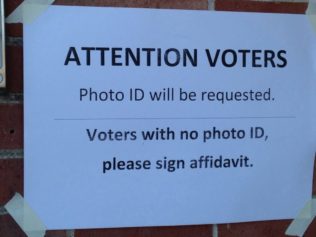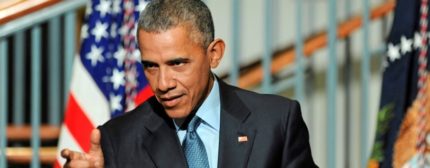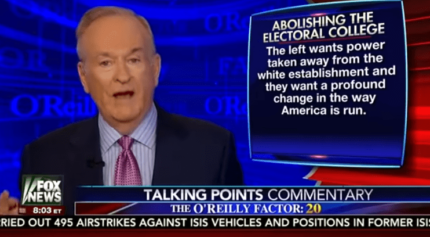
The Black Lives Matter ad appeared on Facebook sometime in late 2016 or early 2016. (Image courtesy of The Fix)
At least one of the Facebook ads purchased by Russia during the 2016 presidential election referenced Black Lives Matter and was intended to target audiences in Baltimore, Md., and Ferguson, Mo., sources familiar with the ad told CNN exclusively.
The ad, which appeared on Facebook sometime in late 2015 or early 2016, is the first look into how social media accounts linked with the Russian government-affiliated troll network known as the Internet Research Agency used geographically targeted ads to spark chaos in the U.S., the sources said.
The ad was seemingly meant to appear as supporting Black Lives Matter, but sources said it also could be viewed as portraying the social justice group as a danger to some residents in Baltimore and Ferguson. Both cities were hubs for unrest and fiery protests after the police killings of Black men Michael Brown in 2014 and Freddie Gray in 2015.
Rather than promote one candidate and/or cause, sources said the Russian-bought ads were meant to intensify political discord and fuel an atmosphere of chaos. The ads were purchased via Facebook’s self-service ad system, which allows buyers to target their ads to audiences based on criteria like geographic location and specific demographic categories.
“This is consistent with the overall goal of creating discord inside the body politic here in the United States, and really across the West,” Steve Hall, the former CIA officer and CNN National Security Analyst, said. “It shows the level of sophistication of their targeting. They are able to sow discord in a very granular nature, target certain communities and link them up with certain issues.”
The BLM ad targeting Baltimore and Ferguson was just one of a few Russian-bought ads presented to Congress earlier this month, according to the sources. Facebook has since agreed to hand over records of all 3,000 ads to Congress in a matter of days. The social media giant has already given copies of the ads and information linked to the suspected accounts to Special Counsel Robert Mueller, who’s heading the special investigation into alleged Russian meddling in the 2016 election.
CNN did not view the ad, but sources gave them a description.
Facebook declined to comment on the CNN story, but instead pointed the news network to a statement from its chief security officer that echoed that of ex-CIA officer Hall.
“The vast majority of the ads run by these accounts didn’t specifically reference the U.S. presidential election, voting or a particular candidate,” Alex Ramos said earlier this month. “Rather, the ads and accounts appeared to focus on amplifying divisive social and political messages across the ideological spectrum — touching on topics from LGBT matters to race issues to immigration to gun rights.”
According to CNN, the Senate Intelligence Committee will also hear from Facebook rival Twitter on Thursday, Sept. 28, to discuss how foreign nationals might have used its ad service to influence the 2016 election.


